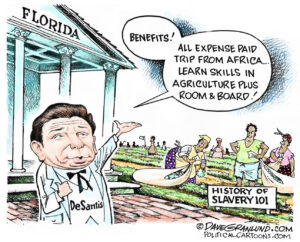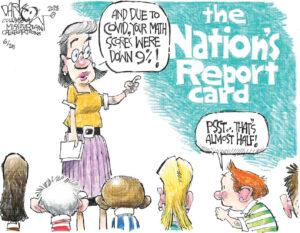Not All Vets Are Treated Equally Under the Post-9/11 GI Bill
The Post-9/11 Veterans Educational Assistance Act of 2008 was hailed by various media outlets and veterans organizations as the GI Bill of the future. However, through my own experience in dealing with Veterans Affairs regarding the GI Bill, I have found that the help is far less than what we were led to believe.
By Philip Chrystal
The GI Bill was created in 1944 to help veterans returning from World War II not only to integrate back into society but also to give them a leg up in furthering their education. The Post-9/11 Veterans Educational Assistance Act of 2008 was hailed by various media outlets and veterans organizations as the GI Bill of the future. However, through my own experience in dealing with Veterans Affairs regarding the GI Bill, I have found that the help is far less than what we were led to believe.
Under the original GI Bill, U.S. veterans of the Second World War were eligible for educational benefits, and many of them used that aid. During the Vietnam War era, proportionally more Vietnam veterans used their benefits for higher education than WWII veterans. The eligibility requirements of the Vietnam-era GI Bill were straightforward: If someone had served a minimum of 180 days on active duty, he or she was fully eligible to receive the maximum benefits.
Under the Post-9/11 GI Bill, the eligibility of service members depends on the type of active duty they served. According to the VA, only federal active duty — not training — is considered in determining benefits.
As a member of the Army National Guard, I performed an infantry mission in Iraq for one year, and before deploying I trained for six months. After my return from Iraq, I served in the Army National Guard on state active-duty orders for nearly three more years. Upon the completion of my enlistment, I stayed in Finland for over a year and attended college, tuition-free. Though the college was on the VA’s approved list, the degree program was not. My school counselor and I labored to get the program approved. After faxing in the required information, we received no reply. I would call the VA office in Albany, N.Y., for information and would be dealt with curtly and, sometimes, with outright hostility. Eventually, the school lost interest in pursuing time-consuming actions that were likely to yield no positive results. It dropped the process, and I received no monetary assistance from the VA.
My wife and I moved back to the U.S. from Europe to pursue higher education, having based our decision on our faith that the sound bites from our government representatives were true. We, like many others, believed that the VA was finally going to pay a realistic amount to veterans for education under the Post-9/11 GI Bill. We were shocked when the certificate of eligibility that arrived in the mail plainly stated that I was eligible for only 60 percent of possible benefits because only a fraction of my total active-duty time would be counted. The three years of state active duty I served was not counted for benefit eligibility, although it did count toward an active-duty retirement. Furthermore, after more than one month I have still not received any payment from the VA. Were it not for the kindness of relatives, my wife and I would be in a very bad position.
If active-duty federal retirement does not discriminate between types of active duty, why does the GI Bill? I wrote to Sen. Jim Webb, D-Va., hoping that the creator of the Post-9/11 GI Bill might be able to shed some light on my dilemma. I have yet to receive a response.
The fine print in the Post-9/11 GI Bill systematically places National Guardsmen and reservists in a “second-class” category. With the military overextended in Iraq and Afghanistan, America’s volunteer, part-time citizen-soldiers dropped their civilian careers to serve their nation. That same country now restricts the money those veterans rightfully earned for education.
Uniquely, the Post-9/11 GI Bill lets veterans transfer their eligibility to their spouses or children. Being that a soldier’s family members are recognized as deserving of educational assistance by the VA, it is insulting that the National Guard and Reserve components of the legislation do not extend such recognition to the soldiers themselves.
I am aware that the Post-9/11 GI Bill is infinitely better than its predecessors — yet it is incomplete. In my letter to Webb, I implored the senator to do more and to finish the job he started. Congressional passage of the Post-9/11 GI Bill clearly illustrates that the United States of America truly values the sacrifices of its veterans. Let us “support our troops,” as countless bumper stickers declare, by enabling all veterans to better themselves, and our nation, by giving them the educational benefits they deserve.
Your support is crucial…With an uncertain future and a new administration casting doubt on press freedoms, the danger is clear: The truth is at risk.
Now is the time to give. Your tax-deductible support allows us to dig deeper, delivering fearless investigative reporting and analysis that exposes what’s really happening — without compromise.
Stand with our courageous journalists. Donate today to protect a free press, uphold democracy and unearth untold stories.









You need to be a supporter to comment.
There are currently no responses to this article.
Be the first to respond.